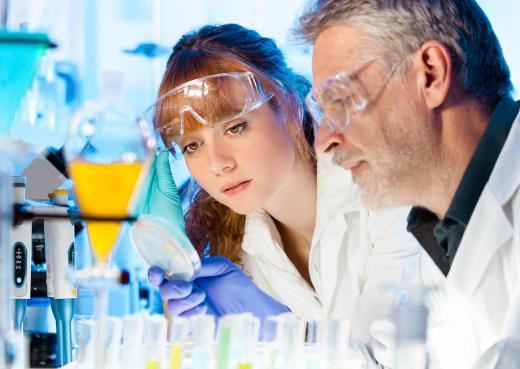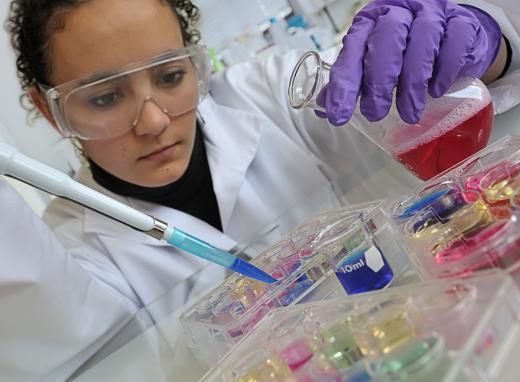What are Science Process Skills?
The history of science is in part the history of how scientists came to look at the world they study. Scientific experimentation and observation have come to be defined by the exercise of a process called the scientific method. The underlying skills and premises which govern the scientific method are referred to as science process skills.
Science process skills refer to the following six actions, in no particular order: observation, communication, classification, measurement, inference, and prediction. These basic skills are used in the experiments of scientists and students, as well as into the everyday life of average person, to a degree. They allow everyone to conduct objective investigation and to reach conclusions based on the results.

The first of the science process skills, observation, involves noting the attributes of objects and situations through the use of the senses. Classification goes one step further by grouping together objects or situations based on shared attributes. Measurement involves expressing physical characteristics in quantitative ways. Communication brings the first three skills together to report to others what has been found by experimentation.

Inference and prediction are the more sophisticated of these skills. Beyond simply seeing and reporting results, scientists must extract meaning from them. These skills can involve finding patterns in the results of a series of experiments, and using experience to form new hypotheses. It is also essential for a scientist to be able to distinguish his objective observations from his inferences and predictions. This is because scientific inquiry and study depend on objectivity and an avoidance of hasty assumptions in experimentation.
All of the science process skills contribute to a larger purpose, namely problem solving. Problem solving is the reason for scientific inquiry, and forms the essence of it. A typical experiment wherein a scientist uses process skills and the scientific method will start with certain questions being asked. Based on prior knowledge and experience, the scientist will make an educated guess as to the answer or outcome. This hypothesis will guide the design and execution of an experiment.
Once the experimental variables have been determined, they can be isolated and controlled. Conclusions drawn based on accurate data collection during the procedure can lead to the hypothesis being verified or proven incorrect. Experience will show a scientist that different conclusions can be drawn from the same set of observations, and still be correct.
AS FEATURED ON:
AS FEATURED ON:












Discussion Comments
Can you tell if a person is using one of the skills in, let's say, everyday life?
I think the whole is much of what we call it paperwork, as in my 17 years of studies I've never seen that kind of method used for teaching sciences.
@daisy17, These skills are used often in everyday life, though you may not think about them as you use them. Anything done by trial and error uses these skills. Noticing something wrong with your car and fixing it yourself is an example.
What are some ways these skills are used in everyday life?
@dudla, Very true. Scientists are continually refining their hypothesis and testing new ones. Experiments may not go as predicted, and when that happens new observations and predictions are made.
It is also important to repeat the experiment; to be sure the results are accurate.
It can also be noted that each of the six skills may be used repeatedly in a process. That is you might start with a prediction, then measure, then infer, then predict something new, then observe and measure, and so on.
Post your comments